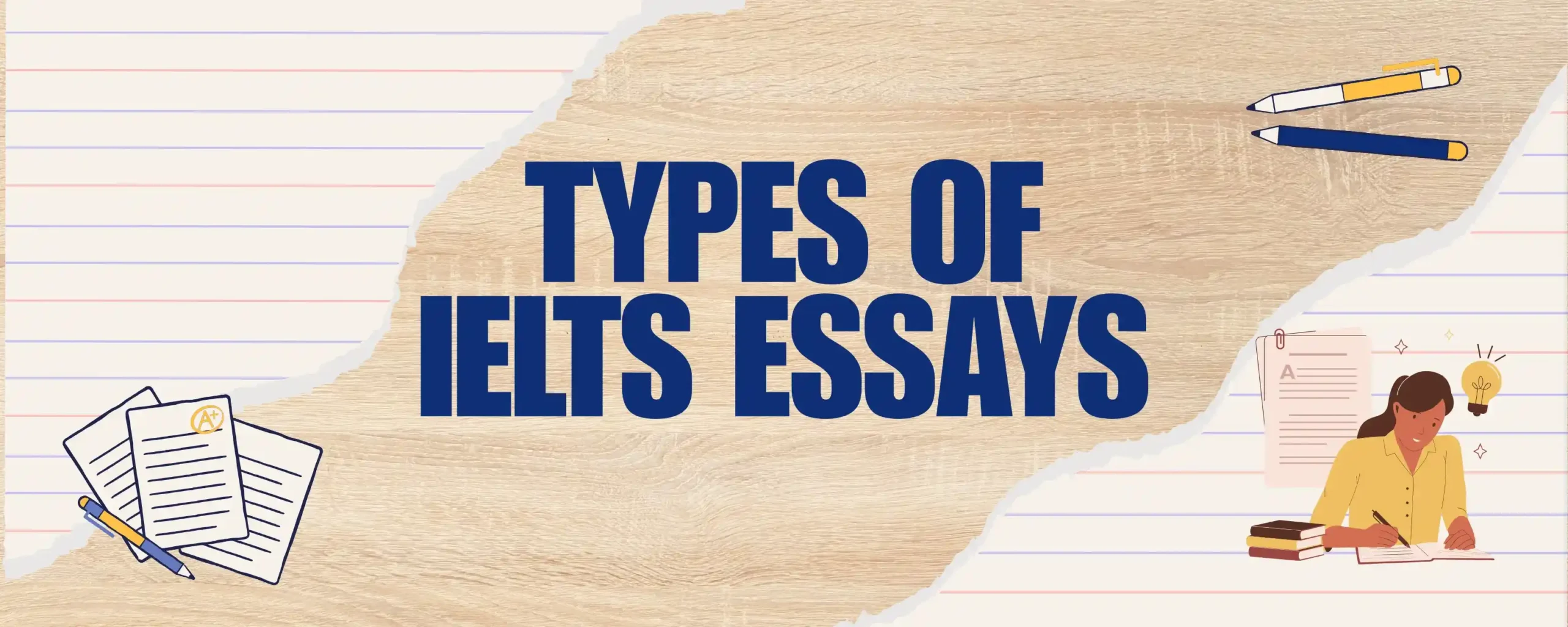Paraphrasing, simply put, is the ability to reframe a sentence with different words without changing its original meaning. It is one of the most essential skills for excelling in the IELTS exam because it shows how diverse your vocabulary is and how you use varied sentence structures.
Whether you’re writing an essay for Writing Task 2 or answering questions for Speaking, paraphrasing indicates your lexical resource and grammatical range, which are two important qualities examiners look for. Vocabulary counts for 25% of your marks. So, in this guide, we’ll look into the importance of paraphrasing, practical strategies to master it, and common pitfalls to avoid. Let us turn paraphrasing into your hidden weapon for IELTS success!
Why Paraphrasing is Important in IELTS?
Paraphrasing is an indicator of good communication abilities in English, making it a crucial tool in your IELTS preparation. It’s a reflection of your linguistic versatility, demonstrating that you can express the same idea in multiple ways. It is most important for writing and speaking sections, where examiners are on the lookout for a rich vocabulary and varied sentence structures. But it will also help you in the reading and listening tests. Here’s why mastering paraphrasing should top your IELTS preparation checklist:
1. Avoid Repetition Penalties: Your score can get affected if you keep using the same words or phrases over and over again. With paraphrasing your answer becomes dynamic, polished, and, most importantly, free from penalties.
2. Shows Command Over the English Language: It highlights your ability to use synonyms and restructure sentences effortlessly. By rephrasing ideas, you show off your lexical resource and grammatical range—two critical scoring criteria.
3. Enhance Clarity and Cohesion: Repetition can make your responses monotonous and hard to follow. Effective paraphrasing keeps your ideas clear, engaging, and varied, improving overall cohesion. This is particularly beneficial in Writing Task 2 essays, where connecting ideas smoothly is essential.
4. Impress Examiners: In the Speaking test, paraphrasing helps you respond naturally, even when you’re unsure of a word. Rephrasing the examiner’s question or your own answer shows quick thinking and adaptability—traits that score big points.
Key Strategies for Effective Paraphrasing in IELTS
Most students think of paraphrasing only as meaning using synonyms. It is more than just swapping words. It’s about conveying ideas in fresh, impactful ways while maintaining clarity and meaning. There are different ways to paraphrase like using synonyms, changing sentence structure and/or word order, verb transformation etc. Let’s explore some of them:
1. Use Synonyms Thoughtfully
The most common technique, and maybe most important, is to find synonyms for keywords in the question. Synonyms are different words that hold the same meaning. For example, ‘humans’ is a synonym for ‘people’ and ‘attractive’ is a synonym for ‘beautiful’. By this method, you can replace a series of words without changing the core meaning of the sentence.
- Original- Climate change is a pressing global issue that requires immediate action.
- Rephrased- Addressing climate change is an urgent worldwide concern that necessitates prompt measures.
One very important thing to consider is only use words you are 100% sure about. Don’t change a word unless you are 100% sure that it is a direct synonym. Otherwise, you are likely to make mistakes.
2. Change Sentence Structure
Altering sentence structure is a powerful way to rephrase. You can reconstruct a sentence by switching from active to passive voice, reordering clauses, changing word order or even flipping the subject and object. Let’s understand it with examples:
Change from active to passive voice:
Original: “People are destroying natural habitats.”
Paraphrased: “Natural habitats are being destroyed by people.”
Changing word order:
- Original: “The line graph below shows the consumption of four kinds of meat in a European country from 1979 to 2004.
- Paraphrased: “The line graph below shows how four different kinds of meat were consumed over a 25-year period in one European Country.”
Reordering clauses:
- Original: “Many people are unhealthy because they fail to eat well and exercise.”
- Paraphrased: “Failing to eat well and not exercising are the reasons that many people have poor health.”
3. Use Different Forms of Words
All you have to do is change nouns into verbs and verbs into adjectives or vice versa. This allows you to showcase your knowledge about how word families work in English in order. A common way to do this is to change the nouns to verbs, verbs to nouns, adjectives to nouns, etc.
- Original – “The study found that exercise can positively impact your health.”
- Rephrased – “According to the study, engaging in physical activity offers a multitude of health advantages.”
4. Break Complex Sentences into Simpler Ones
Simplicity often wins the race. Long, complicated sentences can confuse both the examiner and yourself! By breaking them into smaller parts, you: Improve readability, make your ideas crystal clear and reduce the chances of grammatical errors.
- Original: “While technology has improved communication, it has also reduced face-to-face interactions, which many believe is detrimental to relationships.”
- Paraphrased: “Technology has improved communication. However, it has reduced face-to-face interactions, which some think harms relationships.”
5. Avoid Overcomplicating Paraphrases
Not all words need to be changed. Paraphrasing is about clarity, not complexity. Avoid forcing unnecessary synonyms or overly elaborate structures that confuse your message. For example:
- Original: “Parents play a crucial role in a child’s education.”
- Overcomplicated: “Guardians execute a pivotal function in the academic cultivation of juveniles.”
Common Paraphrasing Mistakes to Avoid
Mistakes can creep in while trying to keep meaning intact while adding clarity and variety, and even small errors can cost you valuable marks in the IELTS exam. Therefore, here are the most usual paraphrasing errors and how to avoid them.
1. Changing Meaning by Mistake: Keeping the original meaning intact is one of the biggest challenges in paraphrasing. Students sometimes unknowingly alter the intent or context of a statement while trying to rephrase it. By understanding the original sentence and double-checking that your rephrased version conveys the same idea as the original, you can avoid making this mistake.
2. Relying Too Much on Synonyms: While synonyms are a key part of paraphrasing, overusing them can result in awkward or incorrect sentences or even worse, it can change the meaning altogether. So, combine synonyms with other strategies, such as changing sentence structure. Focusing on meaning rather than blindly replacing words.
3. Failing to Use the Right Grammatical Forms: Grammar is the backbone of effective paraphrasing. Misusing tenses, articles, or word forms can confuse the reader and lead to incoherent sentences. Know the grammar rules and practice the use of different grammatical forms while restructuring the sentence.
Tips for Practicing Paraphrasing Before the IELTS Exam
Just like any skill, paraphrasing also requires regular practice to master. Here’s how you can sharpen your paraphrasing skills with practical and effective techniques!
1. Read and Summarize Newspaper Articles: Start your day with a dose of news! Pick articles from newspapers. Read a paragraph and challenge yourself to rewrite it in your own words while maintaining the essence. Newspapers are treasure troves of well-structured and varied language which can help you expand your vocabulary, improve sentence structure, and prepare you for real-world topics often found in IELTS exams.
2. Practice with Past IELTS Prompts: What better way to prepare than to work on the past IELTS prompts. Use them as your training ground. Doing this regularly helps you get comfortable with paraphrasing in an IELTS context while broadening your language range.
3. Record Yourself Paraphrasing for Speaking Practice: Paraphrasing isn’t just for writing—it’s equally important in the Speaking section. Pick a question, answer it aloud, and record yourself. Listen to your recording and note areas where your sentences can sound smoother or more natural. REPEAT until you develop fluency and confidence.
4. Play Word Games with Synonyms: Turn your practice into a game! Work with a study partner and challenge each other to paraphrase sentences in different ways under given time. You can even use apps or online paraphrasing tools for inspiration and feedback. Compare the versions to see whose rephrasing is better and learn from it. This way you can explore creative rewording with fun.
Paraphrasing in IELTS Writing vs. Speaking
Paraphrasing is important in both IELTS Writing and Speaking, but the way you apply it differs in each section. In writing, you need precise and structured paraphrasing to reframe the task prompt and academic texts. On the other hand, in Speaking, paraphrasing should feel natural and spontaneous to keep the conversation flowing. Instead of rigidly memorizing synonyms, focus on expressing ideas in different ways. To sound confident, fluent, and well-prepared in the exam, you need to learn both forms of paraphrasing.
Conclusion
Paraphrasing sharpens your language skills not just for IELTS but in real-life communication. Whether summarizing books, movies, or sharing information with others, we naturally resort to paraphrasing. Through paraphrasing you can showcase your vocabulary range, grammatical flexibility, and clarity of thought and impress the examiners. If you have your exam in a few months, then you may be interested in getting feedback and expert guidance by getting into the Right IELTS Online Course. With consistent practice and the right strategies, you can master this skill and take a confident step toward your desired band score. Let’s make paraphrasing your strength and ace the exam!
Frequently Asked Questions
1. How to Paraphrase Effectively in IELTS?
Ans: To paraphrase effectively in IELTS, focus on expressing the same idea using different words and structures while keeping the original meaning intact. Use synonyms wisely, alter sentence structures, change word forms, and break complex sentences into simpler ones. Practice by rewriting IELTS questions and passages in your own words while ensuring clarity and coherence.
2. What is the Golden Rule of Paraphrasing?
Ans: The golden rule of paraphrasing is to retain the original meaning while expressing it differently. Avoid word-for-word substitution without changing the sentence structure, as this can lead to awkward phrasing or loss of meaning. Always ensure your paraphrased version remains clear, accurate, and grammatically correct.
3. What is the 4R Strategy for Paraphrasing?
Ans: The 4R strategy—Read, Reflect, Rephrase, Review—helps in effective paraphrasing:
1. Read the original sentence carefully and understand its meaning.
2. Reflect on the key idea and how it can be reworded.
3. Rephrase using synonyms, restructuring the sentence, or changing word forms.
4. Review your paraphrased version to ensure accuracy, coherence, and originality.





